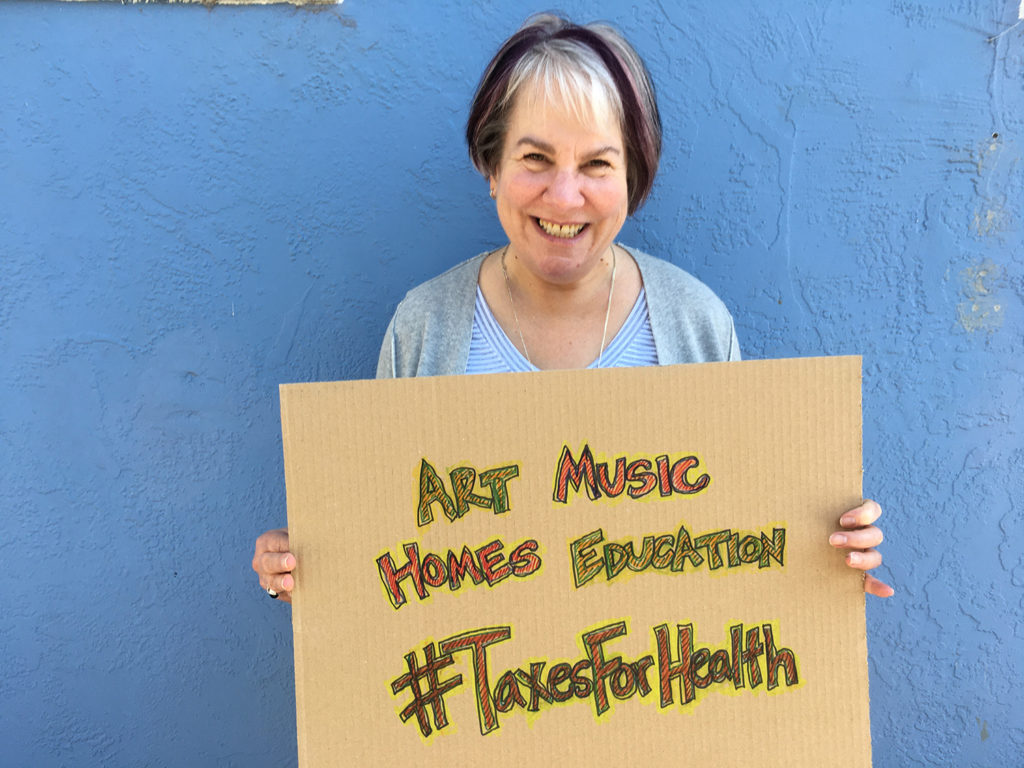Tax Day should be a public health holiday
by: Lori Dorfman
posted on Wednesday, April 15, 2020
After more than 30 years in public health, I’ve long thought that April 15 should be designated as a holiday to celebrate the field. Now that we’re in the throes of COVID-19 it will be easier to see what I mean.

April 15, of course, is when our income taxes are usually due, though in 2020 because of the coronavirus, the deadline was extended to July 15. By paying taxes, we pool our resources so that together we can do what not one of us can do alone. It’s from our taxes that Dr. Anthony Fauci draws his salary — something I’m ever more grateful for as I type these words while safely sheltering at home. Taxes are the fundamental collective act that allows our systems to function, from simple things like keeping street lights on to the complexities of disaster response.
Before coronavirus, when I shared my dream of making April 15 a public health holiday with family and friends, they would look at me quizzically. Now, as never before, they are understanding what it means for our society to have a robust infrastructure for public health.
Taxes demonstrate how connected we are to one another. And COVID-19 demonstrates how much our well-being depends on that interconnection.
Taxes give shape to communities physically by providing the basis for structures like roads, mass transit, schools, parks, and playgrounds. They enable us to move about the landscape to get where we need to go and do what we need to do. And taxes give moral shape to our community by allowing us to prioritize what we collectively care about: Will we feed hungry children? Shelter people without homes? Bring art and music into spaces we can all share?
Taxes are embodied in first responders like fire fighters and ambulance drivers. At the systems level, we can see taxes at work in public health practitioners’ efforts to “flatten the curve” so our hospitals will be open to everyone who needs them.
Yet this simple act — pooling our resources — has been demonized for decades by a small force of ideologues who want to shrink government. This strategy has been hugely successful: Starving government of resources diminishes its functioning, which fuels the perception that government can’t get the job done, which then reinforces the argument that taxes take away more than they give.
Certainly, we need accountability for how our taxes are used. Personally, I’m horrified at the public dollars spent to militarize local police or build new jails when crime is at an all-time low. Those tax dollars would be far better spent on the prevention every community could enjoy if we had, for example, strong mental health systems, quality child care and a college education for everyone who wants it, and repairs for our crumbling sewer and water lines.
Fortunately, U.S. taxpayers understand that taxes are necessary and important. According to research from Vanessa Williamson at the Brookings Institution, across the political spectrum, people see paying taxes as a civil good and civic duty. And we can create a fairer tax system by eliminating the corporate manipulation of the tax code and adjusting the marginal tax rate so the wealthy pay their fair share — even Warren Buffet agrees that the ultra-rich should be paying higher taxes.
A public health holiday on April 15 would remind us that taxes are how we build and maintain all our complex systems for health and safety so we can avoid getting sick or injured in the first place.
Supporting our interconnected systems is crucial for the public’s health beyond the immediate provision of medical care. In fact, the data show that medicine accounts for less than 20% of a population’s health status. The other 80%? Genetics plays a role, but mostly our health is determined by whether we have safe homes and neighborhoods, quality education, adequate employment, affordable food, clean water, air, and soil — even connections to family and neighbors have an impact on health status.
Our national response to COVID-19 is making the need for functioning, well-prepared, and integrated response networks abundantly clear. Public health departments everywhere are using tax dollars to mobilize residents across the country to participate in prevention. These crucial and selfless acts will protect millions of us from infection with coronavirus and save lives.
But even without a global pandemic, we need strong infrastructure to navigate our daily lives.
By ensuring our systems and structures support every community — with special attention to those who suffer the most from preventable health problems — public health can equitably, effectively, and efficiently address the conditions that limit educational, economic, and social opportunity, all of which affect health. But this is only possible with taxes.
A holiday on April 15 would help us make what is usually invisible, visible. When Tax Day is a public health holiday, at least once a year we can focus on the importance of interconnection and celebrate what our taxes should do for our families, our communities, and our nation.
How do taxes help support health in your community? We’d love to hear from you! Join the conversation online using #TaxesForHealth and #TaxJustice. The Public Health Awakened Tax Narrative Workgroup, which BMSG is proud to be part of, has created a Tax Day Action Toolkit to help spark creativity. The toolkit includes a guide for submitting letters to the editor as well as other ways to participate, both with and without social media. Check out the toolkit here: https://bit.ly/taxesforhealth2020



